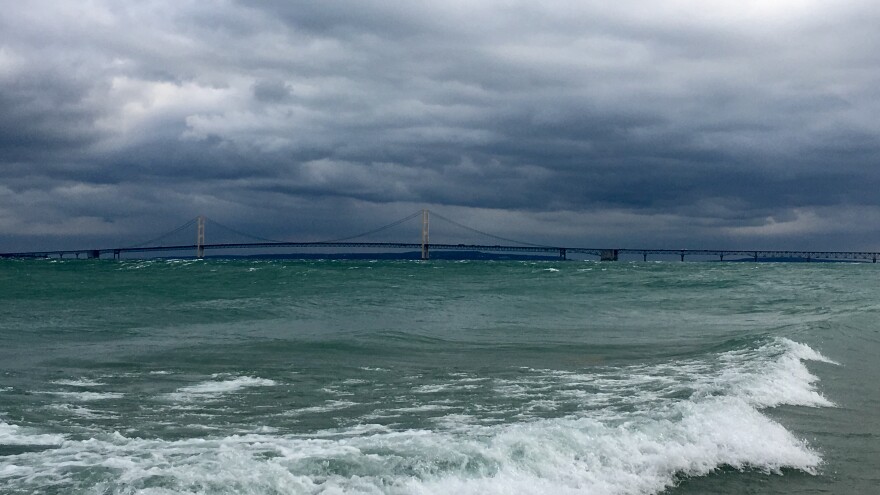Gov. Gretchen Whitmer filed a notice in federal court on Tuesday, to voluntarily dismiss Michigan’s case against Enbridge. It’s part of a strategy to keep other litigation around the Line 5 pipeline in state court.
On November 16, U.S. District Judge Janet Neff ruled the case to revoke the easement for crossing the straits would remain in federal court, despite Michigan’s motion to return it to the state level. Gov. Whitmer said in a statement that she “respectfully disagrees” with Neff’s ruling. The governor dropped the case to allow an older lawsuit to move forward.
In June of 2019, Attorney General Dana Nessel filed suit against Enbridge seeking the permanent decommissioning of Line 5. The 68-year-old pipeline carries crude oil and natural gas liquids through the Straits of Mackinac.
“The governor and I continue to be aligned in our commitment to protect the Great Lakes,” Nessel said in a statement. “This dismissal today will help us advance that goal.”
Attorneys general from neighboring states backed Nessel’s stance in the 2019 filing, while environmental groups and tribal nations in Michigan and Wisconsin have also voiced support.
“In essence, this case is about state law,” said Liz Kirkwood, executive director of FLOW, an environmental nonprofit. “It’s about the proprietary and sovereign interest of the state to protect its public waters and lands from a catastrophic oil spill.”
Nessel’s lawsuit in state court will be heard by Ingham County Circuit Judge James Jamo, who ordered the temporary shutdown of Line 5 last year. When Gov. Whitmer’s litigation entered federal court, Jamo put the case on hold. Whitmer said her dismissal is an effort to keep Nessel’s case moving in Ingham County.
Despite Tuesday’s notice of dismissal, Enbridge plans to move forward with its federal countersuit filed just over a year ago.
“Enbridge will continue to pursue its case in federal court to affirm federal jurisdiction over Line 5,” said Enbridge spokesperson Ryan Duffy in an emailed statement.
“We will continue to pursue the Great Lakes Tunnel to house a replacement section of Line 5, so that it can continue to serve the region safely.”
Duffy cited a 1977 treaty between Canada and the U.S. as grounds for federal jurisdiction over Line 5. The treaty was ratified in the midst of an energy crisis, and is meant to guarantee the uninterrupted flow of pipelines across the border.
Michigan’s twelve tribal nations wrote a letter to President Biden last month, referring to an even earlier treaty. The 1836 Treaty of Washington reserves tribal members’ rights to hunt and fish in ceded territory—rights that tribal leaders say are threatened by Line 5.

